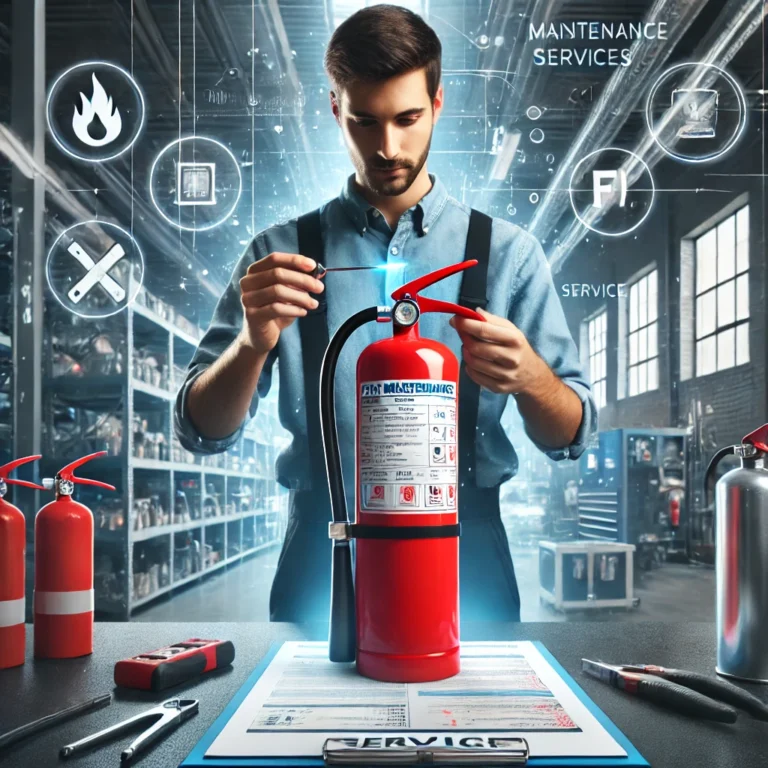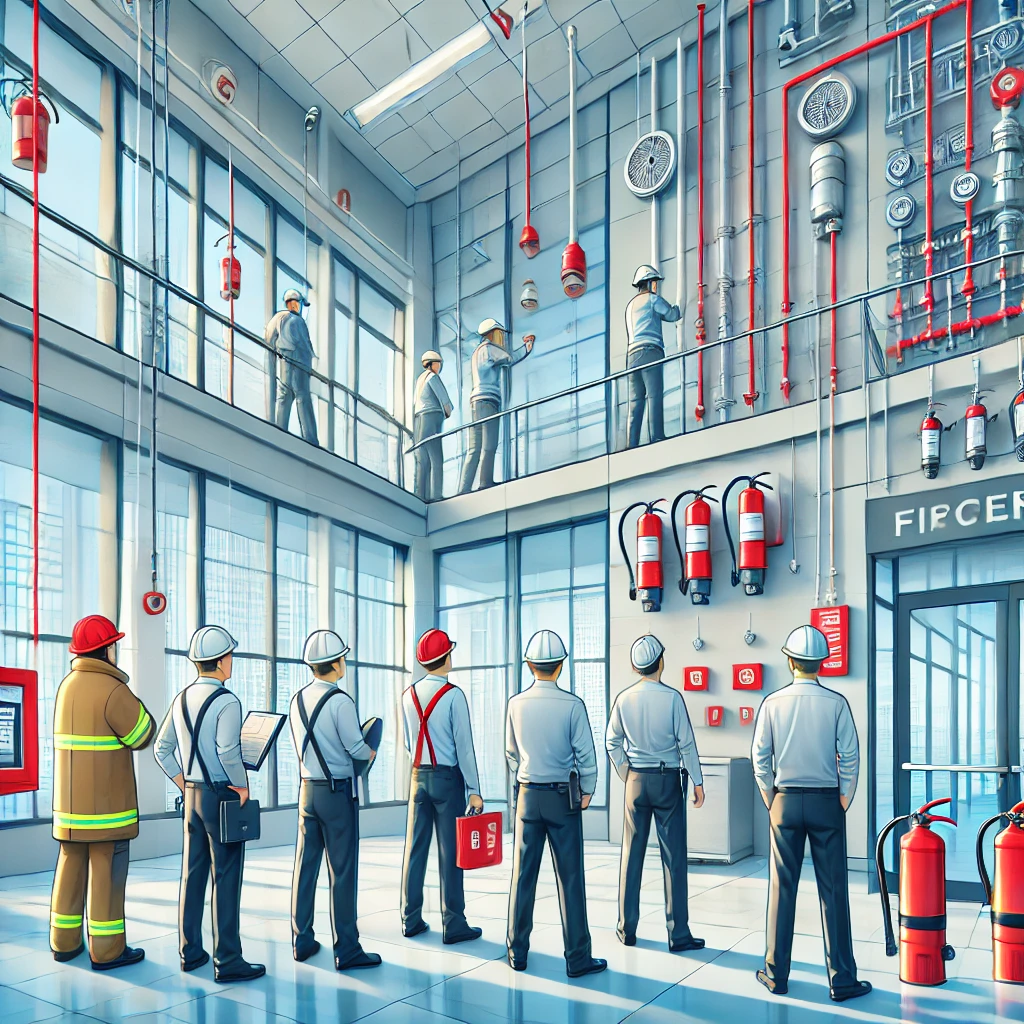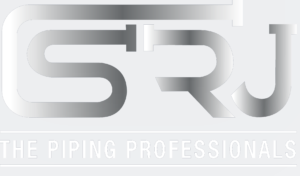Top Fire Suppression Systems for Commercial Buildings
Ever wonder what would happen if your office building suddenly decided to cosplay as a barbecue grill? Not a good thought, right?
That’s where fire suppression systems come in to rescue.
Fire safety isn’t just about having your marshmallows not turn into charcoal—it’s one essential criterion for all commercial buildings out there. You are the unsung heroes to this fiery tale: you are a building owner, facility manager, architect, or construction professional.
Your step?
To select the best fire protection solutions to ensure the safety and well-being of everything within.
Let’s face the fact: lousy fire protection is like dragon-fighting with a water pistol. The repercussions can be terrible. In commercial buildings, fires can cause loss of life, property damage, disruption of business, and legal tangles that will have you wishing you were fighting actual flames instead.
So, buckle up! We’re going to run through the minefield of top fire suppression systems for commercial buildings. From trusty old sprinkler systems to high-tech, gaseous fire suppression, we’ll go through all.

Overview of Fire Suppression Systems
So, what exactly are fire suppression systems, and what makes them significant for your commercial space? They detect the flame, control and extinguish it before it spreads in case of an outbreak. Think of it as silent guardians constantly keeping your building safe.
Robust fire suppression systems, then, become the sort of might-have that becomes inherent to a must. It is about people and property saved from the jaws of what was about to go drastically wrong. Sprinklers, dousing flames with water, or gaseous fire suppression systems, suffocating them with chemical agents—are all forms of this kind.
A suitable fire suppression system can mean the difference between a minor incident and a catastrophic loss.
Gudlines followed According National Fire Protection Association (NFPA): https://www.nfpa.org/
Types of Fire Suppression Systems for Commercial Use
As far as commercial fire safety is concerned, the proper fire suppression systems matter. Detailed below is a view of the top systems available for commercial buildings:
1. Sprinkler Systems
Types: variations exist, including wet, dry, pre-action, and deluge systems.
Applications and advantages: Wet systems remain continuously charged with water, making them effective for most commercial applications such as offices and retail stores. In contrast, dry systems use pressurized air or nitrogen instead of water until they detect a fire. These systems work well in areas prone to freezing temperatures, like warehouses or parking garages.
2. Gaseous Fire Suppression Systems
Applications and benefits: CO2 systems protect electronic equipment, such as in server rooms or data centers, due to their ability to suppress fires quickly without leaving any residue. FM-200 is safe for use in occupied spaces, making it ideal for offices and hospitals. Novec 1230, being environmentally friendly, is an excellent option for areas where sustainability is a priority in operations.
3. Foam Fire Suppression Systems
How they work, where they are used: Foam systems do their function by blankets over the fuel, which prevents oxygen from reaching the fire. They are used in a broad array of facilities handling flammable liquids, such as chemical storage facilities, fuel storage depots, or aircraft hangars
4. Water Mist Systems
Advantages and applications: Water mist systems cool the fire and smother it by spraying very fine water droplets. They are useful in locations where minimal water damage may be critical, for example, in a museum, library, or an archive of valuable articles.
5. Chemical Fire Suppression Systems
Types: Dry and wet chemical system
Uses and benefits: Dry chemical systems can be installed in an industrial environment where there is some potential for flammable liquids or electrical fires. Wet chemical systems are designed especially for kitchen environments to make sure grease fires are duly suppressed with reduced risks of re-ignition.
Each of these fire suppression systems offers various advantages about specific needs and risks associated with your commercial building. Knowing their applications and the accompanying benefits shall further enlighten you on how to make a quality decision for the protection of your property and, more importantly, the people inside.
How to Choose a Fire Suppression System for a Building?
In choosing the appropriate fire suppression system for your commercial building, several factors have to be considered:
Building Type
This includes the layout and construction of the building. How big the space is, the different systems that will be required, and the sensitivity of areas a building may contain, such as server rooms or kitchens, will impact your choice.
Occupancy
The kind of business and particularly how people are using the space matters. Not only are the offices, retail stores, and facilities in industries like manufacturing associated with unique fire risks, but they also require tailored suppression solutions.
Specific Hazards
Identify the possible fire hazards specific to your business, such as flammable materials or electrical equipment. This would further help in deciding which suppression system is most effective.
You should consult a fire protection expert who will further evaluate the particular needs of your building and recommend to you the most appropriate fire suppression systems. They will ensure proper installation that is within the local regulations for your specific business. These experts understand the intricacies of fire safety technology and can therefore advise on proper installation and maintenance.
You want to be sure that it not only passes regulations but will also provide the best, relevant solutions for your commercial building. Bringing in an expert and carefully considering these factors scrupulously will assure you that you have chosen a fire suppression system tailored to your building’s special needs.
Installation And Maintenance Of Fire Suppression System
A fire system installation does require careful consideration to ensure its effectiveness. There are some steps involved in this process, including:
System design: Based on a building’s needs, fire protection experts create a plan.
Permits: Obtain local authority approvals.
Installation: System installation components by qualified technicians; testing upon completion for troubles that prevent normal operation.
Testing: Thorough testing to ensure all equipment is working as intended.
Certification: Obtain approval from the relevant authorities certifying that your system meets all necessary safety standards.
However, Installation of fire suppression systems in commercial buildings is not the end of it. In commercial building fire safety, regular fire system maintenance is as important as the ‘installation’ process. Here’s what you should know:
Arrange for monthly visual inspections to identify apparent problems.
Conduct tests on alarm devices and control panels each quarter.
Annual full inspections and tests shall include comprehensive testing.
Replace components or perform repairs thereto as required.
Note that depending on the type of system, various types of fire suppression may have different requirements for maintenance. For example, sprinkler systems require periodic examinations for water pressure and the integrity of pipes. Gaseous fire suppression systems require the performance of various periodic agent weight and pressure tests.
You are likely to experience several common problems related to the maintenance of your system, which are:
- Accidental activation
- Corrosion in pipes
- False alarms
- Some of the measures to avoid this problem would be to:
- Provide regular training to the staff to avoid accidental triggers.
- Use corrosion-resistant materials in humid environments.
- Advanced detection systems should be implemented to reduce false alarms.
Proper installation and periodic maintenance of commercial fire suppression systems provide the gateway to keeping your fire protection solutions current. This proactive measure not only enhances safety but can also help extend the life of your system, providing value for your investment in commercial fire safety.
Case Studies: Successful Implementations of Fire Suppression Systems
High-Rise Office Complex
In a 50-story office building, a phased installation of a water mist system reduced water damage by 30% during a fire, compared to traditional sprinklers.
Data Center
A large data center implemented a Novec 1230 system, which extinguished a small electrical fire without damaging sensitive equipment, thanks to a well-designed distribution of the gas.

Future Trends in Fire Suppression Systems
he future of fire suppression systems lies in the integration of advanced technologies:
AI-Powered Detection
AI-based systems can detect fires faster and more accurately, potentially preventing fires before they spread.
Automated Response Systems
Smart fire suppression systems can adjust their response based on the type and size of the fire, minimizing damage and enhancing safety.
Environmentally Friendly Agents
New suppression agents are being developed that offer effective fire suppression with minimal environmental impact, making them ideal for sustainable building designs.
Conclusion: The Path to Enhanced Safety
Choosing the right fire suppression system is a critical decision for any commercial building. By understanding the different types of systems available and the specific needs of your building, you can make an informed choice that protects both life and property. Regular maintenance and staying up-to-date with the latest advancements in fire suppression technology will ensure that your system remains effective for years to come.
